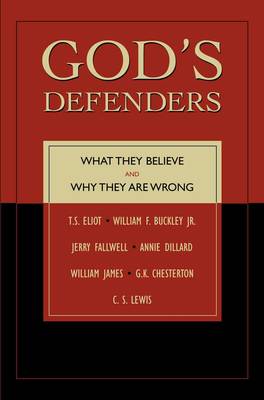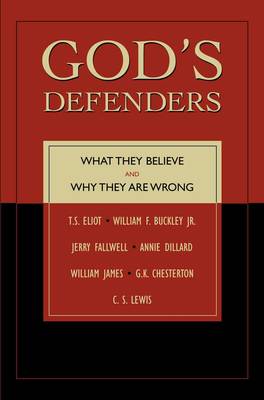
Bedankt voor het vertrouwen het afgelopen jaar! Om jou te bedanken bieden we GRATIS verzending (in België) aan op alles gedurende de hele maand januari.
- Afhalen na 1 uur in een winkel met voorraad
- In januari gratis thuislevering in België
- Ruim aanbod met 7 miljoen producten
Bedankt voor het vertrouwen het afgelopen jaar! Om jou te bedanken bieden we GRATIS verzending (in België) aan op alles gedurende de hele maand januari.
- Afhalen na 1 uur in een winkel met voorraad
- In januari gratis thuislevering in België
- Ruim aanbod met 7 miljoen producten
Zoeken
€ 41,95
+ 83 punten
Omschrijving
Committed atheist S. T. Joshi takes up this long-dormant "call to arms" in this highly acerbic critique of the religious point of view. With the aim of "combating religious mummery and obscurantism" he dissects the arguments offered by well-known apologists for various tenets of belief. Taking on both the famous intellectuals of the recent past as well as leading defenders of the supernatural today, he rigorously examines their claims and in every case finds them deficient in logic, evidence, or both. Nonetheless, he points out that despite the rather obvious fallacies of religious apologies, people continue to believe, whether from ignorance or psychological need. Accusing his fellow nonbelievers of complicity through their silence in perpetuating religious nonsense, he argues that a more vocal and vigorously asserted atheism is needed today.In ten chapters he considers and rebuts the defenses of William James, G. K. Chesterton, T. S. Eliot, C. S. Lewis, William F. Buckley, Stephen L. Carter, Jerry Falwell, Reynolds Price, Annie Dillard, Elisabeth Knbler-Ross, Neale Donald Walsch, and Guenter Lewy. Though all of these very different people - poets, preachers, psychologists, visionaries, and writers - explain religion from utterly different perspectives, Joshi notes that they all share an underlying unwillingness or inability to answer the crucial question: Is religion true? Religion, if it is to survive, insists Joshi, must like science show that its claims are true. For over two hundred years science has been clearly demonstrating the truth of its propositions about reality, while religion has at the same time been consistently failing this test. As long as influential people continue to defend religion, it is time, says Joshi, for nonbelievers to point out -loudly and clearly - that the emperor has no clothes.
Specificaties
Betrokkenen
- Auteur(s):
- Uitgeverij:
Inhoud
- Aantal bladzijden:
- 330
- Taal:
- Engels
Eigenschappen
- Productcode (EAN):
- 9781591020806
- Verschijningsdatum:
- 1/06/2003
- Uitvoering:
- Hardcover
- Formaat:
- Genaaid
- Afmetingen:
- 162 mm x 234 mm
- Gewicht:
- 580 g

Alleen bij Standaard Boekhandel
+ 83 punten op je klantenkaart van Standaard Boekhandel
Beoordelingen
We publiceren alleen reviews die voldoen aan de voorwaarden voor reviews. Bekijk onze voorwaarden voor reviews.









